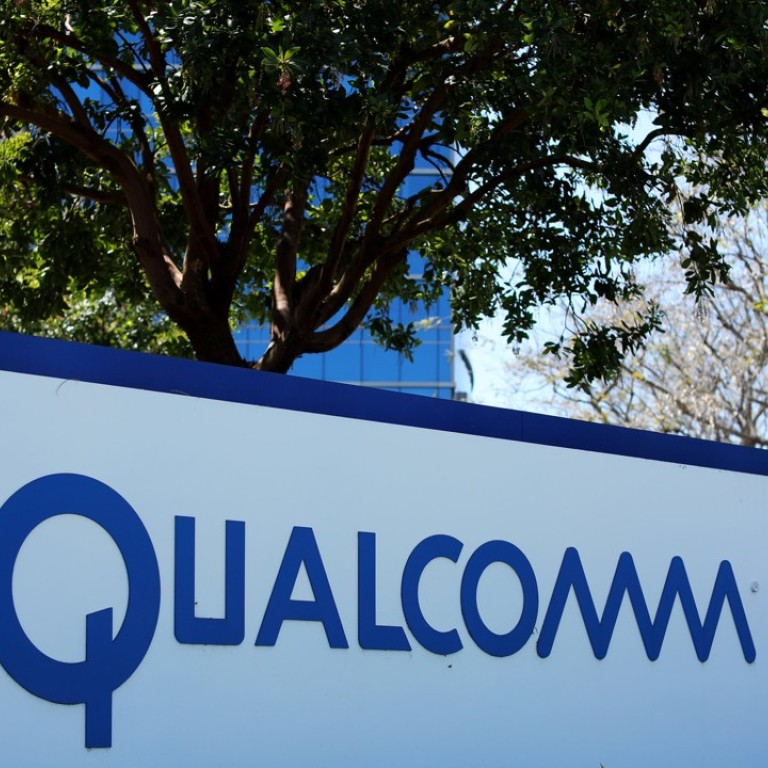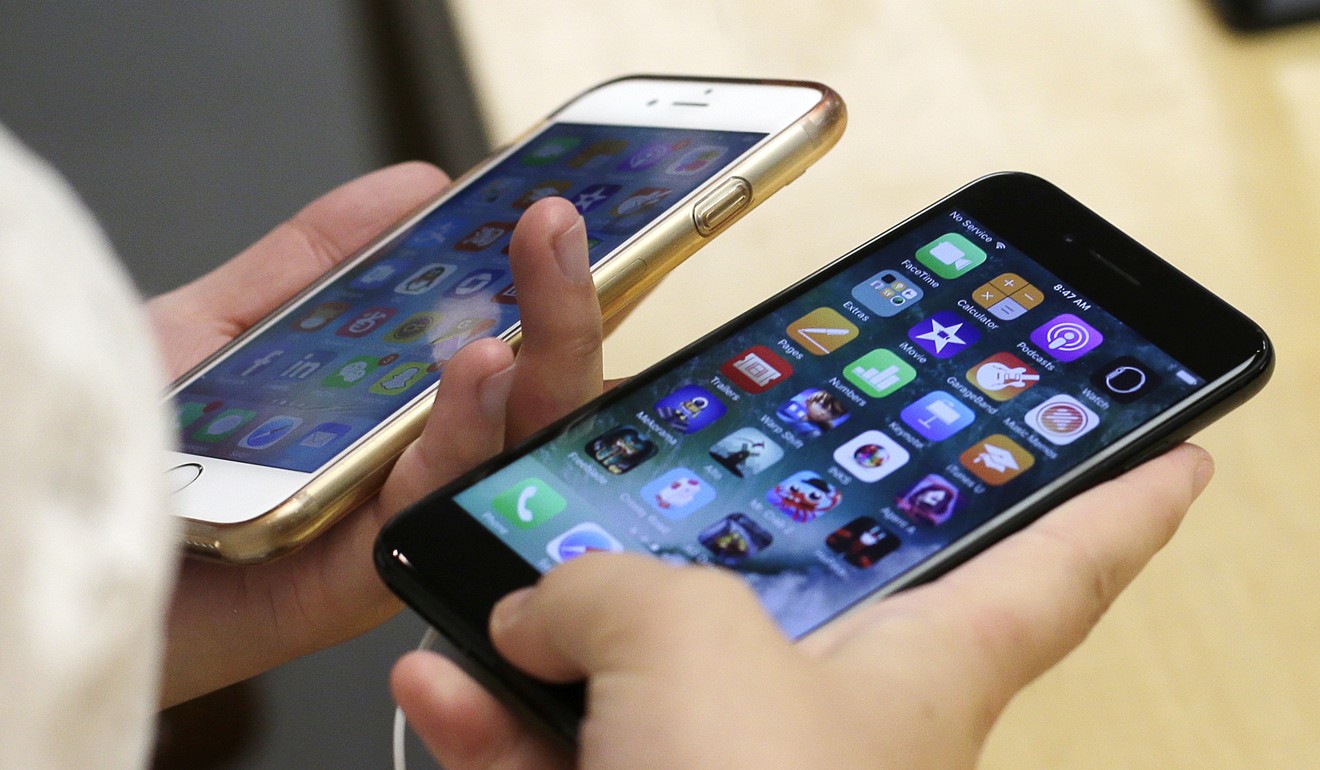
Qualcomm sues Apple’s contract manufacturers as battle between tech giants worsens
Lawsuit hooks in Foxconn, Pegatron, Wistron and Compal in escalating battle
Qualcomm’s battle with Apple is heating up, as the mobile chip company hauls assemblers of the iPhone into a US court on claims they are failing to pay patent royalties.
Four Taiwanese contract electronics manufacturers led by Hon Hai Precision Industry, widely known by its trade name Foxconn, are not complying with obligations to pay for the use of patented technology, according to a complaint Qualcomm said it filed in federal court in San Diego, California. The three other companies sued are Pegatron Corp, Wistron Corp and Compal Electronics.
Unlike other smartphone companies, Apple does not have a direct license with Qualcomm and instead pays contractors to make its devices, parts of which are used to cover royalties such as those owed under agreements struck before the first iPhone appeared. The chipmaker blamed Apple for dragging its contract manufacturers into the dispute, saying the decision not to give them money for royalties had stopped them from paying Qualcomm, according to the complaint.

“Their gripe, their issue, appears to be with Apple,” said Qualcomm general counsel Don Rosenberg. “We’re suing to make the point that others shouldn’t be used by Apple to advance this agenda they have of attacking us.”
Qualcomm said Apple has agreed to cover the costs incurred by the contract manufacturers.
Asked for comment, the company referred to an earnings call earlier this month in which Apple chief executive Tim Cook said the US firm is taking a “principled stand” because Qualcomm’s “really great work” is only “one small part of what an iPhone is", so its does not merit a cut of the entire price of the smartphone.
Apple also repeated a statement it has given in the past. “We’ve been trying to reach a licensing agreement with Qualcomm for more than five years, but they have refused to negotiate fair terms,” Apple said. “Without an agreed-upon rate to determine how much is owed, we have suspended payments until the correct amount can be determined by the court. As we’ve said before, Qualcomm’s demands are unreasonable and they have been charging higher rates based on our innovation, not their own.”
One of the key components of Apple’s, and many others’, accusations against Qualcomm is the basis on which it charges licensing. Currently, the fee is calculated as a percentage of the selling price of the phone. Qualcomm’s opponents argue that should be changed to a percentage of the price of the type of semiconductor that Qualcomm makes, a switch from a base of hundreds of dollars to tens of dollars.
Apple argues that the price of the whole smartphone encompasses innovation it has done that has nothing to do with Qualcomm. Qualcomm has countered that the technology it has contributed to the industry -- the way in which data is transmitted over radio waves -- is fundamental and supports all of the other innovations in the smartphone. Charging based on the price of the smartphone is also an industry-standard practise established in law, the chipmaker has argued.

